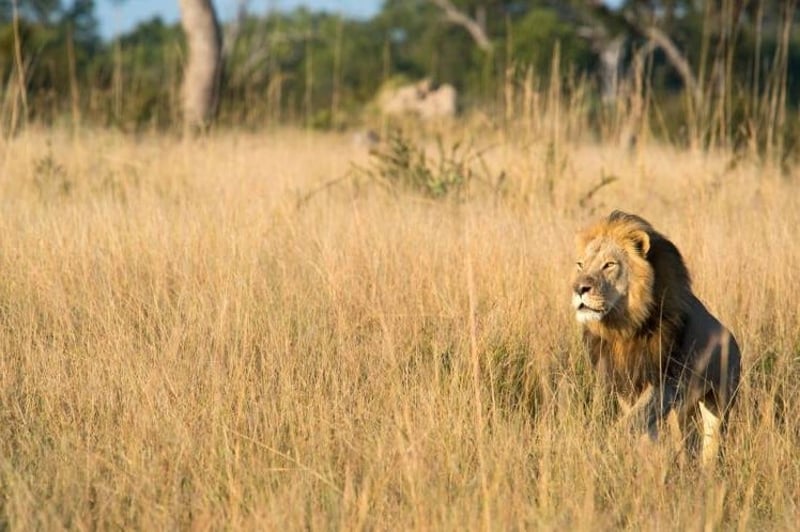
Our response to the killing of Xanda the lion
News
Two years after Cecil the lion was killed by a trophy-hunter in Zimbabwe, his son Xanda is reported to have met a similar fate.
Xanda, a six-year-old lion fitted with an electronic tracking collar by Oxford University researchers, was reportedly shot on a trophy hunt outside the Hwange National Park.
Tennyson Williams- Africa Director for World Animal Protection said:
“The senseless and cruel killing of Cecil’s son Xanda is unacceptable. This shows once again that the world must urgently act to protect animals in the wild.
“The rearing and killing of lions in the name of ‘entertainment’ must end. Trophy hunting often leads to prolonged suffering and fuels demand for wild animal products, leaving them open to further exploitation.
"Wild animals belong in the wild and should not prop up this sordid industry.
"Africa would benefit much more from an industry based not on hunting but on protecting lions. Kenya, the only African country where trophy hunting is completely outlawed, enjoys a vibrant safari industry, worth around $800 million to the annual economy.”
Despite international outcry following the death of Cecil, hunting lions remains legal in several southern African countries, including Zimbabwe.
The death of Cecil, and now Xanda, shines a light on the cruel use of animals in entertainment and the trophy hunting industry.
Wildlife is a lucrative business, with animals such as lions being torn from their mothers at just a few weeks old.
These cubs can be kept in small enclosures with no shade from the heat, fed a poor diet, and are abused until they become compliant enough for photo opportunities or lion walks with tourists. They may then be sold into untracked trade chains that can end in the canned hunting industry.
All over the world wild animals face ongoing suffering in the wildlife entertainment industry. The time has come to put an end to this.
Image credit: Bert Duplessis
Trophy hunting often leads to prolonged suffering and fuels demand for wild animal products, leaving them open to further exploitation.